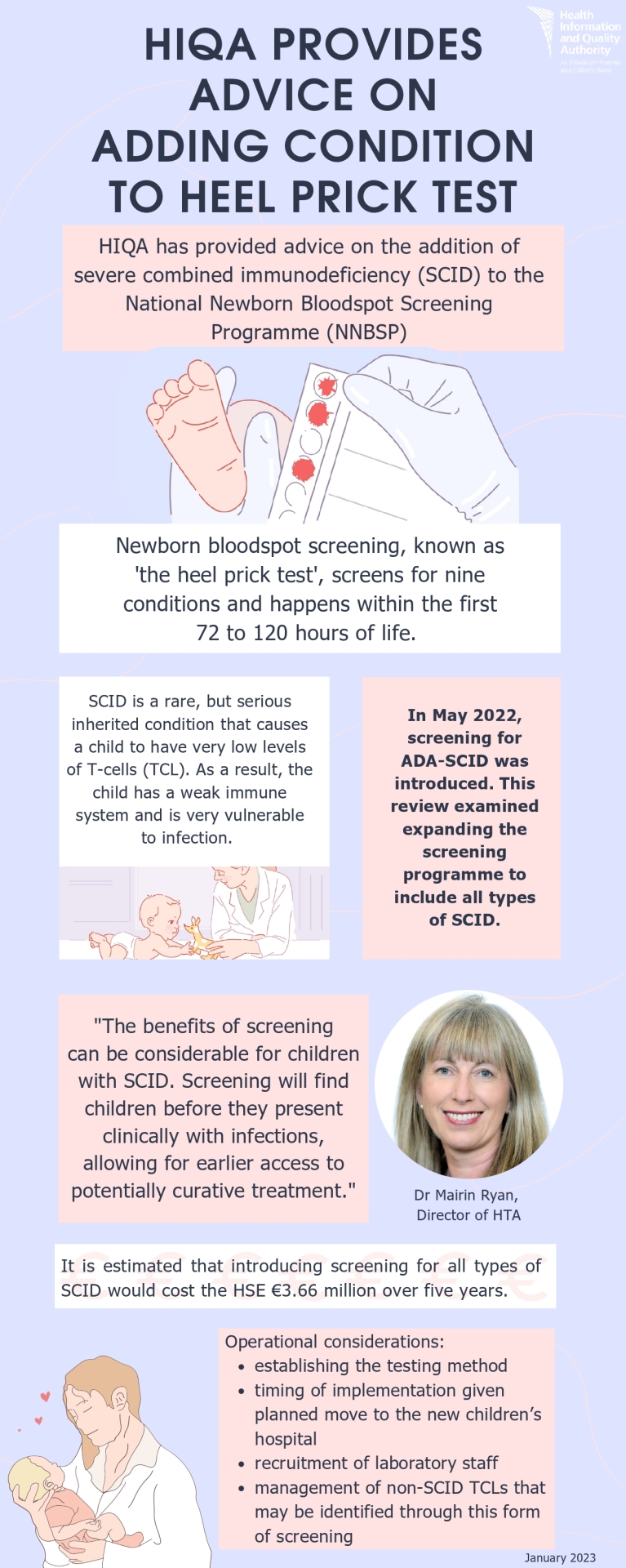
All new babies born in Donegal will now be tested for a total of ten conditions as part of the Baby heel prick test which is carried out in the very early days of a young life after birth.
The new test is for severe combined immunodeficiency (SCID) which is a rare, life-threatening, inherited condition that results in a child having low levels of T-cells.
This causes the child to have a weakened immune system, and therefore to be very vulnerable to infection.
SCID can be identified through screening, family history or the development of severe and or recurrent infections.
The National Newborn Bloodspot Screening Programme (NNBSP) provides newborn bloodspot screening (also referred to as the 'heel prick test') within the first 72 to 120 hours of life and currently screens for nine conditions.
This follows HIQA publishing a health technology assessment (HTA) on the addition of severe combined immunodeficiency (SCID) to the National Newborn Bloodspot Screening Programme (NNBSP).
Following a subsequent positive recommendation from National Screening Advisory Committee (NSAC), the Minister for Health has approved the addition of SCID to the NNBSP.
HIQA found that earlier diagnosis and treatment of SCID leads to better clinical outcomes for children with SCID, with reduced mortality rates and avoidance of harms. Screening would enable the earlier detection of children with SCID. However, it will also identify children who have very low levels of T-cells for other reasons, not all of which will be clinically relevant or will benefit from earlier detection.
HIQA estimated that introducing screening for all types of SCID would cost €3.66 million over five years.

HIQA's report also identified some key operational considerations relevant to introducing this new form of screening for SCID. These include timing of implementation given the planned move to the new children’s hospital as well as the training and recruitment of laboratory staff.
Dr Máirín Ryan, HIQA's Deputy CEO, and Director of Health Technology Assessment, said:
"Newborn screening for all SCID types through the National Newborn Bloodspot Screening Programme will help find infants before they present clinically with infections, allowing for earlier access to potentially curative treatment. In this way, the benefits of screening can be considerable for children with SCID and their families."
You can find the full HTA on www.hiqa.ie.
Subscribe or register today to discover more from DonegalLive.ie
Buy the e-paper of the Donegal Democrat, Donegal People's Press, Donegal Post and Inish Times here for instant access to Donegal's premier news titles.
Keep up with the latest news from Donegal with our daily newsletter featuring the most important stories of the day delivered to your inbox every evening at 5pm.